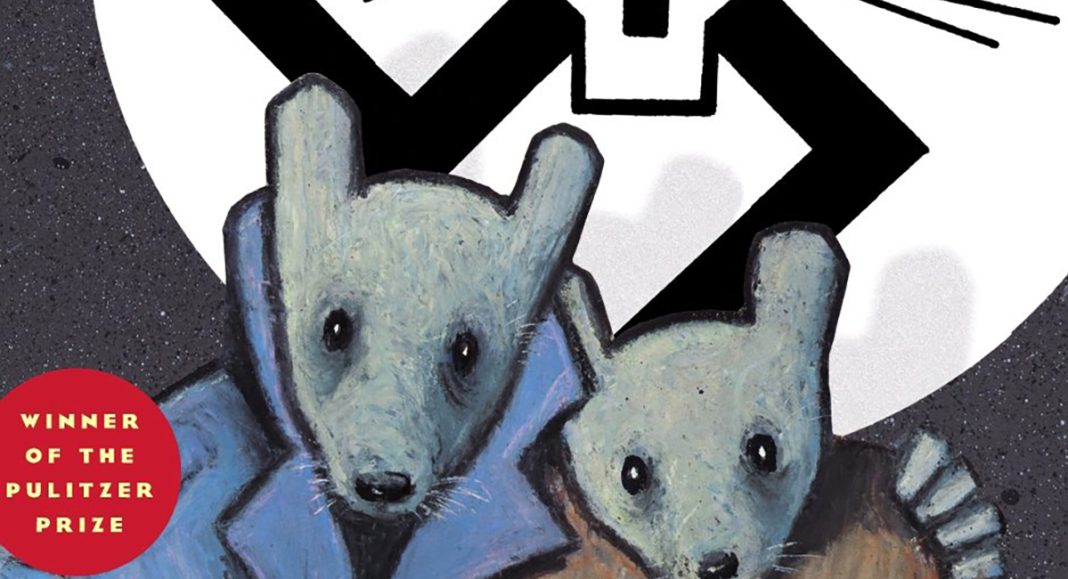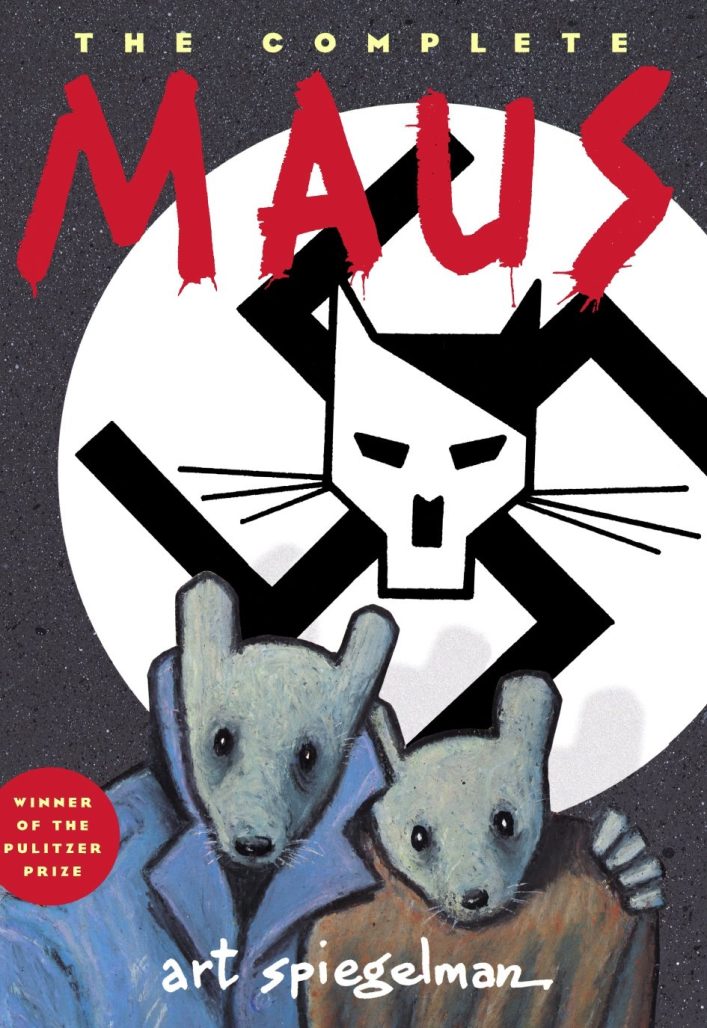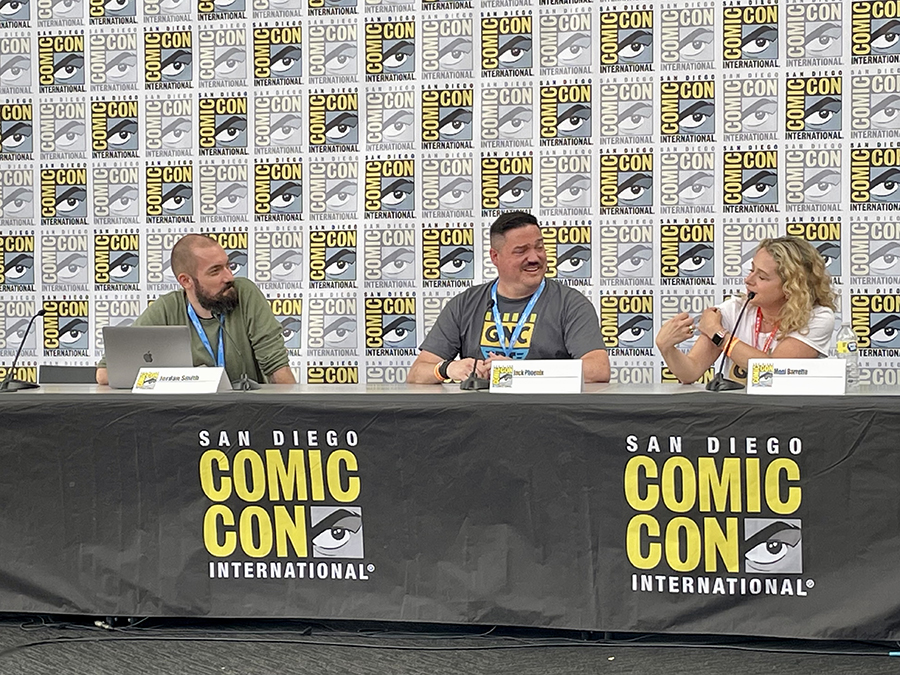By Ani Bundel
In January 2022, a Tennessee school board voted to pull the Pulitzer Prize-winning graphic novel, Maus. It was a high-profile example of a renewed war in attempting to censor comic books and graphic novels that have dogged the artform since its inception. The concern of this movement led to the San Diego Comic-Con partnership with the San Diego Central Library panel, moderated by the Comic Book Legal Defense Fund’s Jordan Smith, “Defending Comics in Schools of Libraries.”
Librarian and author Jack Phoenix began the panel with an overview of what is a complex and convoluted history. The first move to curb comics started in the 1930s as an artform for children that was not “approved” by educators. In the 1950s, a study published under the title Seduction of the Innocent linked the artform to juvenile delinquency, which led to the creation of the Comics Code Authority, a self-regulating body. Their rules (considered responsible for comics restricting themselves to teen high school dramas and superheroes for decades) weren’t repealed until this century. The Comic Book Legal Defense Fund was formed during that era and continues today.
The problem is partly the visual medium, as Graphic Novels and Comics Round Table president Moni Barrette pointed out that individual panels can be easily taken out of context. Also, comics are usually political, making them an easy target to focus on. Barrette, who has also been persecuted online for running a Drag Queen children’s hour in her local library, pointed out that there are easy things to do to stop these witch hunts before they start.
Both she and Phoenix argued to pay attention to local elections and who winds up on these smaller elected bodies and could use it to grandstand and gain points. Also, though it sounds dull, ensuring there are strict rules keeps people from monopolizing and moralizing meetings where they can whip up hysteria. If the pressure is coming from those higher up the food chain, this is where having the buy-in of the local community and your school/library stakeholders is vital.
Phoenix also recommends killing patrons with kindness if they attempt to “disappear” (check out and steal) books they want to be removed from educational institutions and local libraries. (Digital copies can also be helpful in this instance.) Unfortunately, sometimes there’s a need to pick your battles, and with legislation moving through some states to fine or even jail those who distribute banned books, it’s essential to watch what’s happening at your local level.
Having the backing of national groups is also crucial when things start reaching higher levels. As Smith said, using social media and going viral with a story (like the Maus incident) is sometimes the only option.
One issue Smith has been watching is the new rating systems that certain private groups, like Moms For Liberty, have been creating and pushing local communities to adopt. As the in-house librarian for a book vendor, Barrette pointed out that these ratings work both ways and that conservative books can also be rated as not for children. Also, a rating system can help defend books that groups are trying to go after. But Phoenix argued ratings should be guidelines, not the be-all-end-all.
In the end, the decision has to be up to the individual. And that can be difficult, especially if sometimes individuals can’t agree on what is and isn’t ok for children and teens. But though this issue won’t be fixed anytime soon, keeping awareness of banning comics is one all of us can help with.
Miss any of The Beat’s earlier SDCC ’22 Coverage? Find it all here!










